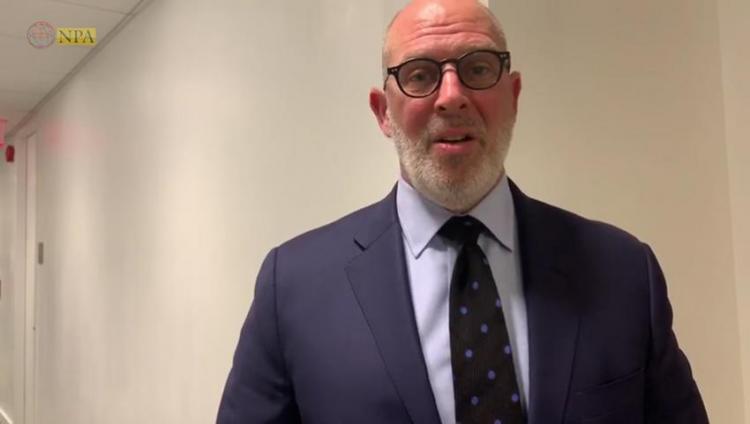The Bush administration spokesman to “North Press”: Turkey did not fight Iran or Da’esh in Syria, rather, fights the Kurds.
The Bush administration spokesman to “North Press”: Turkey did not fight Iran or Da’esh in Syria, rather, fights the Kurds.
The US Representative Office of the National Council of Resistance of Iran (NCRI) held a press conference for the Iranian resistance in Washington on the next phase of sanctions facing the Iranian regime and its impact on the activities of the Iranian regime abroad.
The Diplomatic conference was attended by Adam Ereli, spokesman for the US State Department in the Bush administration and Ali Reza Jafarzadeh, deputy director of the Iranian Resistance Council. The participants agreed that “the Islamic Revolutionary Guard Corps “IRGC” is the source of a significant number of terrorist agencies that spread chaos in the Middle East”.
On the future of the Iranian sanctions impact, with the end of the exemptions, Jafarzadeh said in an interview with “North Press” that the effect of the exemptions on the oil markets was minimal, because it had been well prepared, and the decision was announced before a month, about the intention of the United States of bringing Iran’s oil exports down to zero.
Jafarzadeh does not believe that the lifting of sanctions is beneficial to the Iranian people, because sectors such as gas, oil and petrochemicals are under the control of the Iranian Revolutionary Guards and the Basij, which controls these resources in full.
The Iranian Resistance of the people’s Mujahedeen of Iran (Khalq), who were removed from the lists of terrorist organizations in America in 2012, suggests that the United States will target the Iranian regime’s diplomats in prisons.
However, Ambassador Adam Ereli believes that this step has legal challenges that protect diplomats and the US government cannot arrest them.
On the sidelines of the conference, spokesman for the US State Department in the Bush administration, Adam Ereli, told “North Press” that confronting Iran in Syria is one of the most difficult issues in the Iranian file.
Ereli does not think that the United States has a clear idea of what to do in Syria.
On one hand, President Trump said, our mission in Syria is to fight Da’esh, we have done it, and our troops will return to America.
On the other hand, officials in his administration, including the foreign minister and his national security adviser Mike Pompeo, said that it was very important that some troops remain in Syria to prevent the return of the “Islamic state”, also, to watch Iran, as 400 American troops will remain in Syria for the two mentioned missions.
“I do not know if this is enough, especially that Iran has tens of thousands of troops and militias in Syria fighting for its side, like Hezbollah, Pakistanis and Afghans,” he said.
Ereli does not see Iran abandoning as vital and important position as Syria, and despite Russia’s promise to try to soften Iran’s influence, yet, billions of dollars Iran has invested in the region remain a proof of its survival that can only be solved by direct confrontation by the United States, as Israel does, but he sees no American willingness to do so.
Will Turkey or its agents be an alternative in Syria after the departure of the US forces?
As for Turkey or its agents as an alternative to American forces in Syria after their departure, Adam Ereli told North Press: “certainly, Turkey will not be an option for America to combat Iranian influence in Syria. Turkey is a part of the problem and not the solution, because it is not an enemy of Iran or its militias, it focuses, only, on fighting the Kurds in Syria, plus, Turkey has not shown any interest in fighting Da’esh.”
Moreover, anyone who thinks that Turkey may take the place of the United States in Syria, is very wrong. First, Turkey does not care if Iran and Da’esh are present in Syria. Second, Turkey does not have the military logistical capabilities and the tools to replace the United States. Despite being a major force in the region, yet, Turkey does not have the capabilities, of which the United States set in Syria, to do the job.
Turkish Foreign Minister Mouloud Chaoyash oglu said that his country was close to reach an agreement with the United States regarding the planned Safe Zone in northeast Syria, on its southern border.
Washington-Hadeel Eweis-NPA

